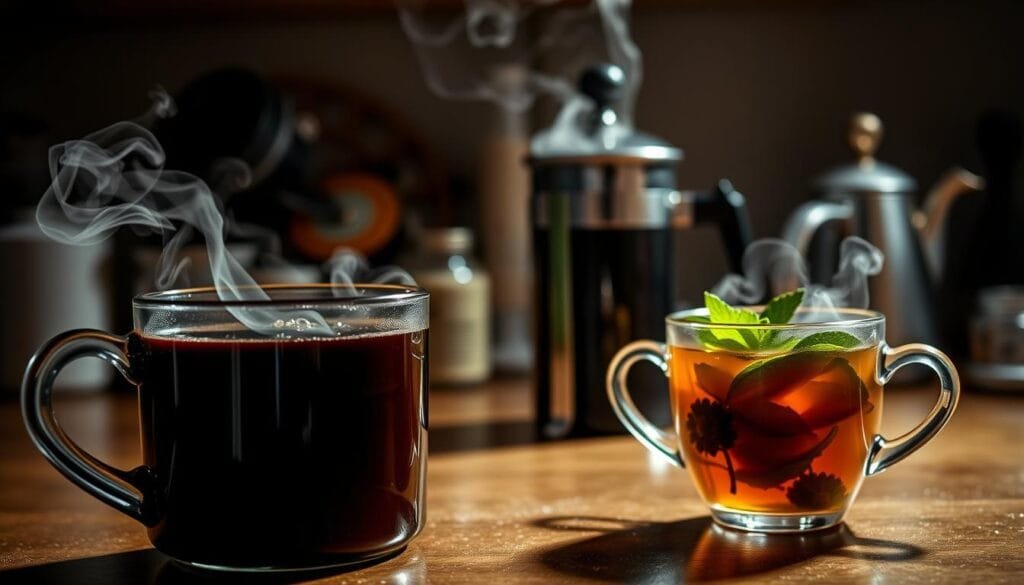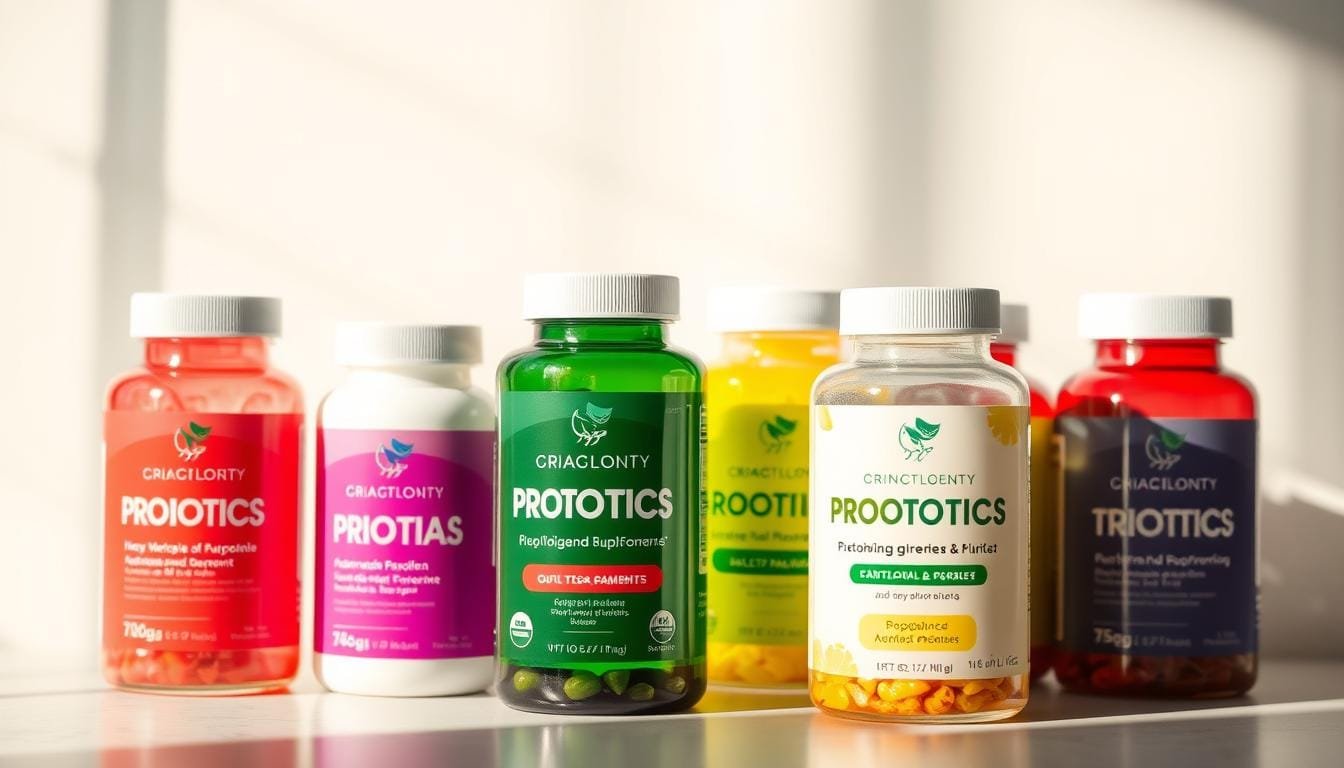Currently Empty: RM0.00
Many Malaysians sip hot kopi or teh without thinking about supplements.
Probiotics are living cultures that help the digestive system stay balanced. They can be harmed by very hot liquids and strong acids, which cut into their effectiveness.
Timing matters. Taking capsules with room-temperature water or low-fat milk and avoiding high-heat beverages preserves bacteria and boosts benefits.
Small changes, kept consistent over time, support daily wellness and lasting gut health.
Wellness Concept offers guidance for those who want a tailored routine. Contact via WhatsApp +60123822655. Hours: Mon–Fri 9:30 am–6:30 pm; Sat 10 am–5 pm; Sun closed.
Key Takeaways
- High heat and strong acidity reduce live culture survival.
- Use room-temperature liquids or low-fat milk for best retention.
- Space supplements away from antibiotics for full benefits.
- Consistent routines improve gut and immune support over time.
- Simple swaps keep Malaysian drink habits without losing effectiveness.
Understanding probiotics today: how live cultures support gut and immune health
Live microorganisms in many supplements act as tiny allies inside the gut. They arrive as cultures designed to increase resilience after stress, travel, or antibiotic use.
Key strains include Lactobacillus and Bifidobacterium. These strains work as good bacteria that aid digestion, assist nutrient breakdown, and support the immune system. Targeted strains can help restore a healthier microbial mix when usual bacteria are low.
Roles of major strains
| Strain | Main role | Common benefits |
|---|---|---|
| Lactobacillus | Support digestion | Reduce bloating, improve nutrient absorption |
| Bifidobacterium | Maintain gut lining | Ease regularity, support immune response |
| Mixed strains | Broader balance | Resilience after antibiotics or stress |
Consistency matters. Daily exposure helps the system keep balance and boosts the chance these live bacteria persist. Simple routines and mindful pairing with neutral foods improve long-term benefits.
Wellness Concept can tailor routines. WhatsApp +60123822655. Hours: Mon–Fri 9:30 am–6:30 pm; Sat 10 am–5 pm; Sun Closed.
Search intent clarified: what readers want to avoid to protect probiotic effectiveness
Readers often want a quick list of beverages that can reduce probiotic survival.
Quick summary: three categories most often weaken live cultures — hot beverages, acidic beverages, and alcohol. These options affect survival through heat, low pH, or damaging chemicals. A short rule is to separate supplement time from risky drinks by a couple of hours.
Practical tips for daily life in Malaysia are easy. Let kopi or teh cool before sipping. Choose room-temperature water or low-fat milk near supplement time. Small changes give measurable gains in effectiveness probiotics deliver for gut health.
- Hot beverages: kill cultures with high heat.
- Acidic beverages: lower pH harms bacteria survival.
- Alcoholic drinks: stress microbial membranes and reduce effectiveness.
If routines are complex, Wellness Concept can help design a schedule. WhatsApp +60123822655. Hours: Monday–Friday 9:30 am–6:30 pm; Saturday 10 am–5 pm; Sunday Closed.
What not to drink while taking probiotics?
Temperatures, acids, and alcohol each affect live cultures in different ways.

Hot beverages: tea, coffee, soups and heat limits
Very hot tea, kopi, coffee, and soups can damage live cultures. Heat above about 40°C is the rough threshold where delicate bacteria start losing viability.
Tip: let hot beverages cool to room temperature before swallowing a capsule or tablet.
Acidic beverages: citrus juices, sodas and tonics
Acidic drinks such as orange juice, lemonade, sodas, and highly acidic tonics lower pH and challenge bacteria survival. Labels sometimes hide added acids, so check before pairing a supplement with bottled options.
Alcohol: beer, wine, spirits and microbiome effects
Beer, wine, and spirits can disturb gut balance and reduce probiotic effectiveness. Alcohol stresses microbial membranes and may blunt benefits when consumed close to supplement time.
Carbonated drinks: pressure and acidity combined
Carbonation adds mechanical stress on cells and often brings extra acidity. The combo makes it harder for live cultures to survive the journey to the intestines.
- Avoid very hot drinks around supplement moments.
- Space acidic beverages by a couple of hours when possible.
- Choose room-temperature water or low-fat milk for safer mixing.
Small swaps deliver big gains. Readers in Malaysia can keep flavors they love by cooling kopis and teh, timing supplements, and checking labels.
Wellness Concept offers personalised plans via WhatsApp +60123822655. Hours: Monday–Friday 9:30 am–6:30 pm; Saturday 10 am–5 pm; Sunday Closed.
Why temperature, acidity, and alcohol matter for live microorganisms
Every sip can alter the journey of helpful microorganisms before they reach the intestines.
Heat sensitivity and the 40°C rule
Heat denatures proteins and weakens cell walls, so many bacteria lose viability above about 40°C.
Practical rule: let hot beverages cool before pairing with capsules or sachets to protect survival.
pH dynamics and the stomach barrier
Stomach acid is already harsh, and an extra acidic drink raises external stress on microbes.
This added acidity lowers the odds that helpful strains survive the trip to the gut.
Ethanol’s membrane effects
Ethanol penetrates and disrupts bacterial membranes, which reduces viable counts of probiotics live after ingestion.
Hot alcoholic drinks combine heat and ethanol, and that synergy further harms bacteria and cuts effectiveness.
Balance matters: choosing acid-tolerant strains helps, but timing, temperature control, and simple swaps protect health outcomes in the digestive system.
Wellness Concept offers personalised advice via WhatsApp +60123822655. Hours: Monday–Friday 9:30 am–6:30 pm; Saturday 10 am–5 pm; Sunday Closed.
Timing and pairing best practices to maximize probiotic survival
Simple timing tweaks help helpful microbes survive the trip through the stomach.
Morning or pre-breakfast is often the best window. Stomach acidity tends to be lower then, and that supports better survival of probiotics.
Morning or pre-breakfast advantages
Taking supplements before a light meal gives strains a gentler passage. A small amount of food can act as a protective matrix without overwhelming digestion.
Spacing strategies: 2–3 hours from antibiotics and strong beverages
They should space intake at least 2–3 hours away from antibiotics, alcohol, and acidic drinks. This reduces direct conflicts and preserves benefits.
Safer mixers and neutral foods
Pairing with room-temperature water, low-fat milk, or a bowl of oats helps retention and comfort. Neutral foods and plain cereals are friendly to the digestive system and the gut.
- Sample routine: take supplements on waking, eat a light breakfast, enjoy coffee later after cooling.
- Keep water on hand and avoid extreme temperatures near intake moments.
- For travel or social events, plan dosing earlier or later in the day to protect survival without missing out.
| Window | Why it helps | Practical tip |
|---|---|---|
| Pre-breakfast | Lower stomach acid in many people | Take supplements, then wait 10–20 minutes before light food |
| 2–3 hours from antibiotics | Reduces drug–microbe interactions | Schedule antibiotics and probiotics in separate blocks |
| With neutral foods | Food provides a gentle protective matrix | Mix with room-temperature water, low-fat milk, or oats |
Consistency helps. Keeping a steady time each day trains the body and the gut to use arriving strains more effectively. For tailored routines in Malaysia, contact Wellness Concept on WhatsApp +60123822655. Business hours: Monday–Friday 9:30 am–6:30 pm; Saturday 10 am–5 pm; Sunday Closed.
Malaysia-friendly swaps: smarter drink choices with local habits in mind
Local habits can stay the same with easy timing and cooler beverage options that protect helpful strains.
Kopi and teh alternatives
For daily routines, suggest room-temperature herbal infusions or iced versions after dosing. These options keep flavour but cut heat stress on live cultures.
Let hot kopis and teh cool below scalding temperature before swallowing a capsule. This protects bacteria yet preserves taste.
Festive and social settings
At celebrations, take supplements earlier in the day. That gives space between dosing and any alcoholic rounds and helps maintain gut balance.
Carry water between drinks and choose light foods like oats or plain crackers when stomachs feel sensitive.
- Schedule probiotics in the morning; enjoy alcohol later.
- Let acidic or strong beverages sit away from dosing times.
- Use water as a buffer during meals and social hours.
| Situation | Smart swap | Practical tip |
|---|---|---|
| Morning routine | Room-temp herbal tea | Take supplements first, drink tea 10–20 minutes later |
| Festive evening | Delay alcohol | Take probiotics earlier; hydrate with water between rounds |
| Acidic favourites | Iced or cooled alternatives | Keep strong flavours at least 2 hours from dosing |
Balance comes from timing and moderation. Small swaps protect outcomes with minimal change. For customised guidance, contact Wellness Concept on WhatsApp +60123822655. Business hours: Monday–Friday 9:30 am–6:30 pm; Saturday 10 am–5 pm; Sunday Closed.
Integrating probiotics with meals and other supplements
A small bowl of oats or a splash of low-fat milk can improve retention and cut side effects.
With food versus empty stomach: practical guidance for tolerance and retention
Taking probiotic supplements with a light meal often reduces bloating and helps new bacteria survive the stomach passage. A gentle food matrix—oats, plain cereal, or low-fat dairy—buffers acid and supports balance.
Some people tolerate an empty-stomach dose well. If discomfort occurs, switch to a food window for better comfort and steady retention.
Separating from multivitamins, antifungals, and hot tonics
Keep a two-hour gap from antibiotics and antifungals to avoid neutralising effects. Space mineral-rich multivitamins away from probiotic doses; some minerals and botanicals may interfere with live strains.
Avoid mixing into hot tonics: heat reduces viability. Use room-temperature beverages for rinsing or pairing.
- Sequence supplements: morning probiotics, midday multivitamin, evening medications when possible.
- Keep a written routine for consistent timing and better effectiveness.
Wellness Concept offers local guidance. WhatsApp +60123822655. Business hours: Monday–Friday 9:30 am–6:30 pm; Saturday 10 am–5 pm; Sunday Closed.
Quality over quantity: choosing resilient probiotic supplements
Choosing the right product matters more than chasing high colony counts. Readers should focus on proven strains and real-world survival, not marketing numbers.
Strain specificity and CFU considerations
Look for clear labels that list strains by name. Well-studied examples such as Lactobacillus and Bifidobacterium have documented roles in the gut.
Fewer targeted strains often outperform crowded blends with no purpose. Verified strain names help match a product to a reader’s goals and health needs.
Survivability and third‑party testing
Survival through stomach acid matters for real benefit. Formulations with acid-resistant delivery or tested shelf-life prove that probiotics live until use.
Third‑party testing is a quality signal. Look for certificates that confirm CFU at end of shelf life and clear storage instructions.
| Quality signal | Why it matters | Practical tip |
|---|---|---|
| Named strains | Shows evidence-based role | Match strain to goal |
| Survival data | Predicts delivery to gut | Prefer acid-tolerant formulas |
| Third‑party test | Verifies counts | Check certificate date |
- Balance gut outcomes depend on strain choice and smart habits around beverages and foods.
- Resilient products offer better value and system-wide benefits than high CFU claims alone.
- For personalised product matching, contact Wellness Concept on WhatsApp +60123822655. Business hours: Monday–Friday 9:30 am–6:30 pm; Saturday 10 am–5 pm; Sunday Closed.
Get personalized guidance from Wellness Concept in Malaysia
A quick chat with an advisor can turn confusing supplement timing into a simple plan.
Wellness Concept helps Malaysians protect gut health with easy, local strategies. Advisors tailor routines around work and family time, suggest water and cooling swaps for hot beverages, and map ideal windows for taking probiotics and other supplements.

WhatsApp +60123822655 for tailored routines and local diet pairing
Contact: WhatsApp +60123822655 for a short consultation. Advisors review label reading, storage tips, and gentle pairings for sensitive stomachs.
Business hours
Hours: Mon–Fri 9:30 am–6:30 pm; Sat 10 am–5 pm; Sun Closed.
- They sequence time windows to avoid conflicts with beverages and meals.
- They tailor hydration plans and suggest cooler alternatives to hot drinks.
- They help choose supplements that fit goals and tolerance, and advise on travel or festive schedules.
- Follow‑up reminders and quick check‑ins make routines easy to keep and let benefits compound.
Short guidance can save time and reduce trial-and-error. Readers gain confidence with a culturally aware plan that protects bacteria survival and supports lasting wellness.
Conclusion
Protecting helpful strains starts with easy timing and cooler, neutral choices.
Avoid very hot or highly acidic beverages near dosing, and space antibiotics by 2–3 hours.
Choose room-temperature water or gentle foods like oats or low-fat milk. These choices help live bacteria pass the stomach and reach the gut.
Pick quality probiotic supplements that list strains such as Lactobacillus and Bifidobacterium. Consistent daily routines yield measurable gains in digestive system balance and overall gut health.
For personalised advice in Malaysia, contact Wellness Concept via WhatsApp +60123822655. Business hours: Monday–Friday 9:30 am–6:30 pm; Saturday 10 am–5 pm; Sunday Closed.
FAQ
Which beverages can reduce probiotic survival and why?
Highly acidic drinks, very hot liquids, alcoholic beverages, and some carbonated sodas can harm live cultures. Acid and ethanol can damage cell membranes, heat above about 40°C can kill strains like Lactobacillus and Bifidobacterium, and carbonation raises both pressure and acidity stress, lowering the chance those organisms reach the intestines.
Are hot drinks such as coffee, tea, and soups safe with supplements?
No. Temperatures above the 40°C guideline reduce viability for many strains. It helps if they wait until beverages cool to room temperature before taking capsules or mixing powders so live microorganisms remain effective.
Do citrus juices and sodas interfere with live cultures?
Yes. Acidic juices and most sodas lower pH and create a harsher environment for probiotics. Drinking them immediately alongside supplements can cut survival rates; better alternatives include neutral liquids like room-temperature water or low-fat milk.
How does alcohol affect gut bacteria and supplement outcomes?
Alcohol can both alter gut ecology and damage probiotic cell membranes. Consuming beer, wine, or spirits close to a dosing time reduces benefits. Spacing supplements several hours away from alcoholic drinks is recommended for better results.
Are carbonated beverages particularly harmful?
Carbonation increases acidity and mechanical stress, which together challenge probiotic survival. If possible, avoid fizzy mixers when taking live-culture products and use still liquids instead.
When is the best time of day to take probiotics for higher survival?
Taking them in the morning or before breakfast often helps because stomach acid tends to be lower then. Consistent daily timing improves colonization and overall digestive balance.
How long should supplements be spaced from antibiotics, alcohol, or acidic drinks?
A 2–3 hour gap is a practical spacing strategy. This reduces direct interaction and gives probiotics a better chance to survive stomach passage and reach the gut.
What are safer mixers and food pairings for probiotic supplements?
Room-temperature water, low-fat milk, yogurt with live cultures, oats, or other neutral, low-acid foods make reliable pairings. These help buffer stomach acid and improve retention through the digestive tract.
Do strain and product quality matter for survival through the stomach?
Absolutely. Some Lactobacillus and Bifidobacterium strains show greater acid and heat tolerance. Choosing products with appropriate CFU counts, strain specificity, and third-party testing increases the odds of real benefits.
How should people in Malaysia adjust habits like kopi or teh when using supplements?
They can switch to cooler versions of kopi or teh when dosing, or take supplements at a different time than hot drinks. For social settings with alcohol, scheduling supplements several hours apart helps preserve effectiveness.
Can probiotics be taken with multivitamins or other supplements?
It depends. Some minerals and antifungals may interfere with survival. Separating probiotics from multivitamins and antifungal tonics by a couple of hours reduces interaction risk and supports better colonization.
Where can someone get personalized advice about timing and local diet pairing?
Wellness Concept in Malaysia offers tailored routines and local pairing guidance. They can be reached via WhatsApp at +60123822655 during business hours: Mon–Fri 9:30 am–6:30 pm and Sat 10 am–5 pm.



